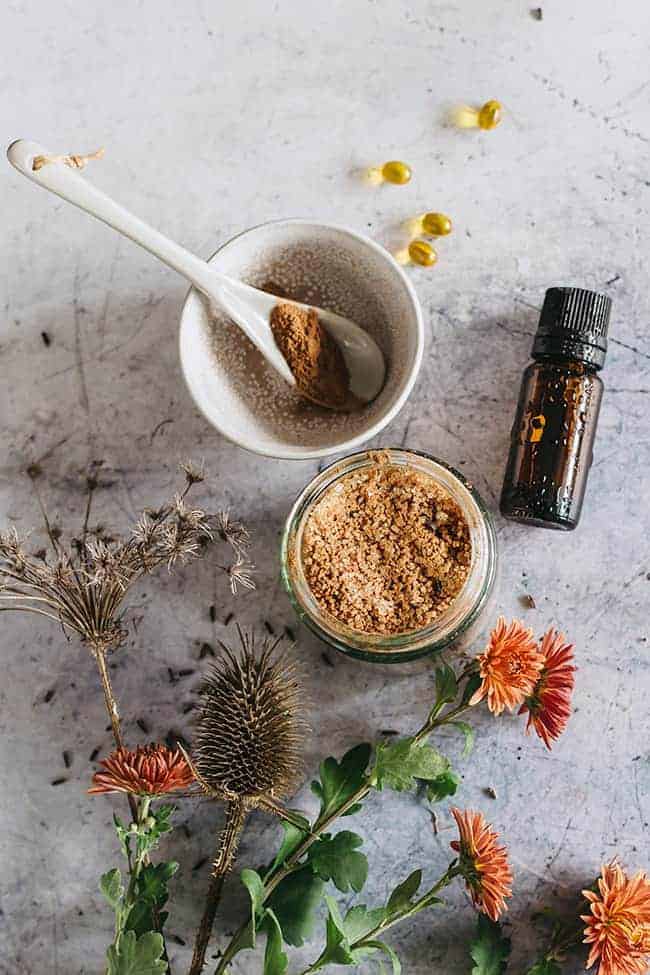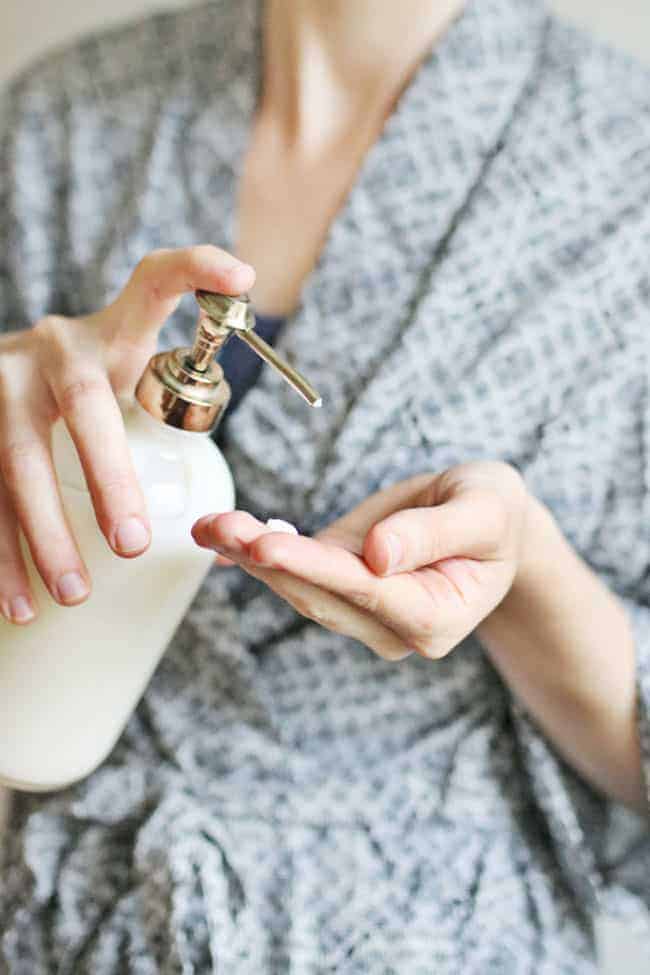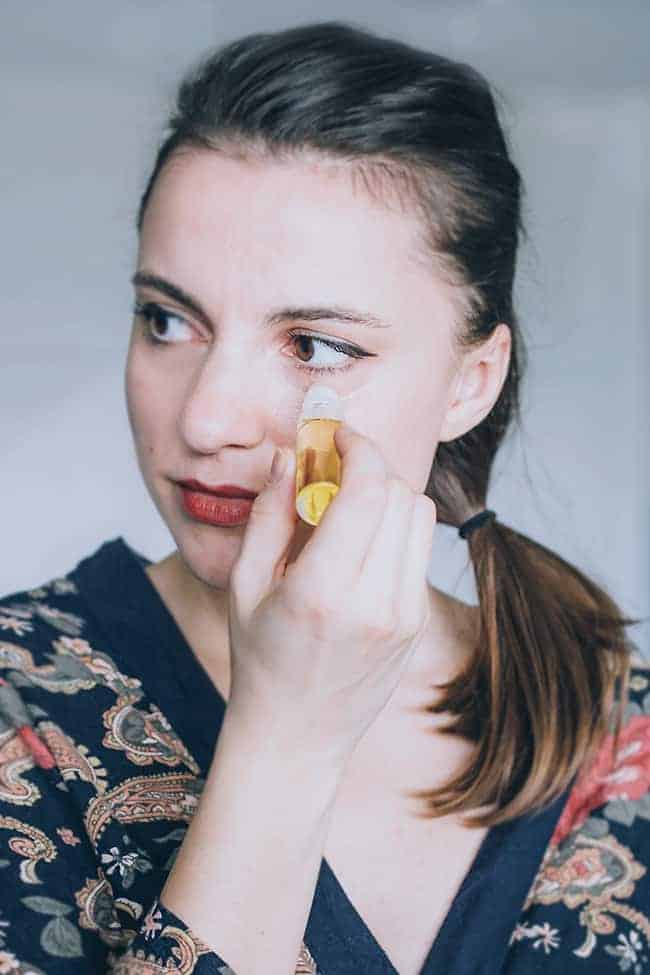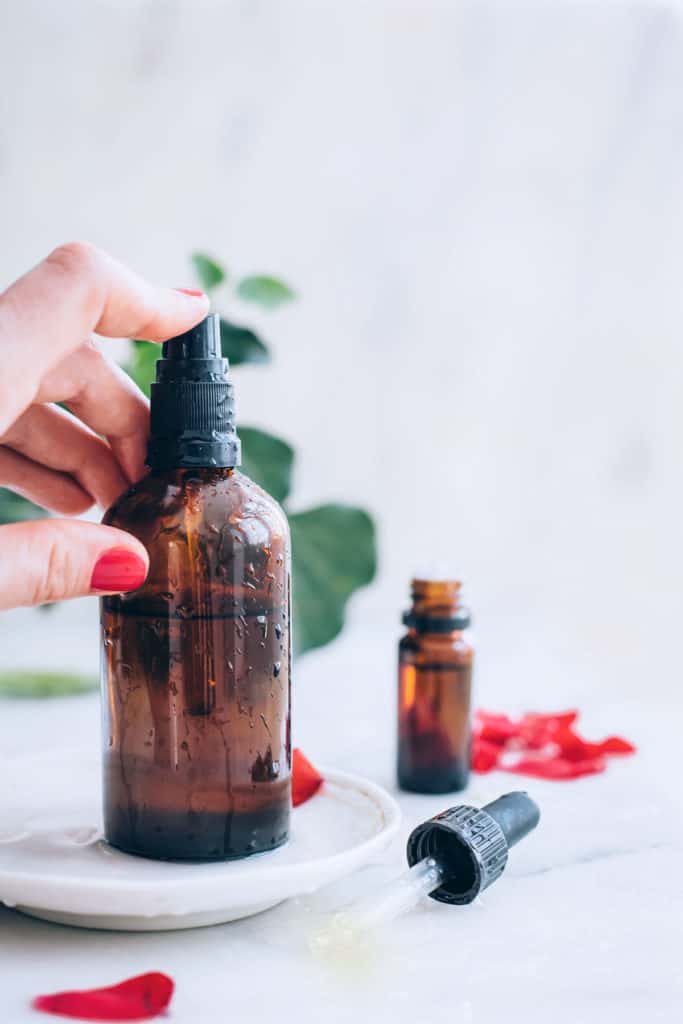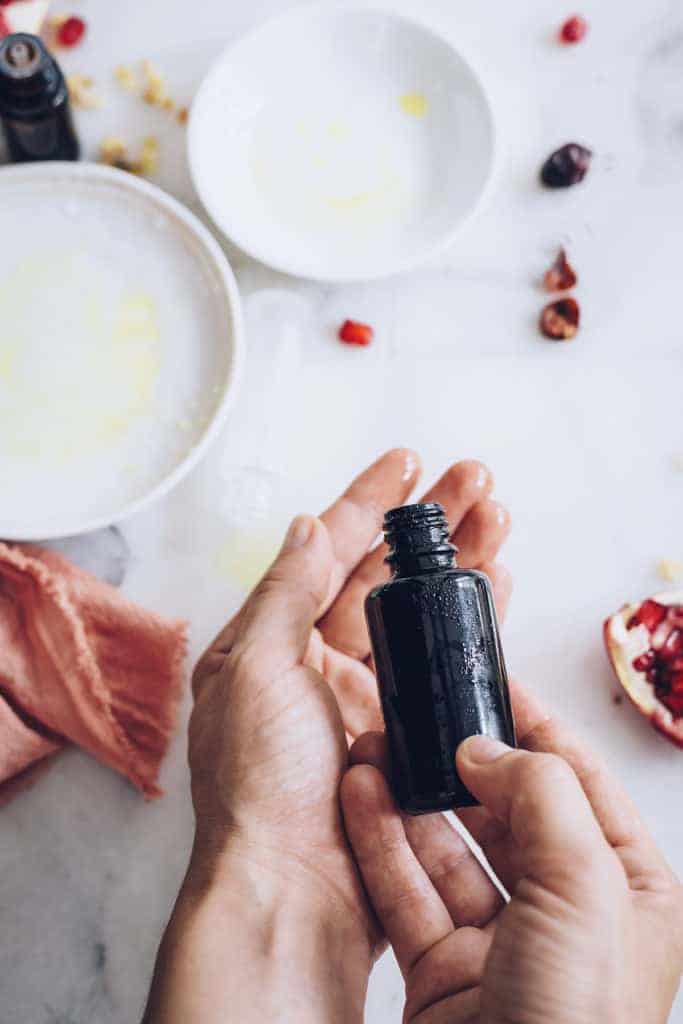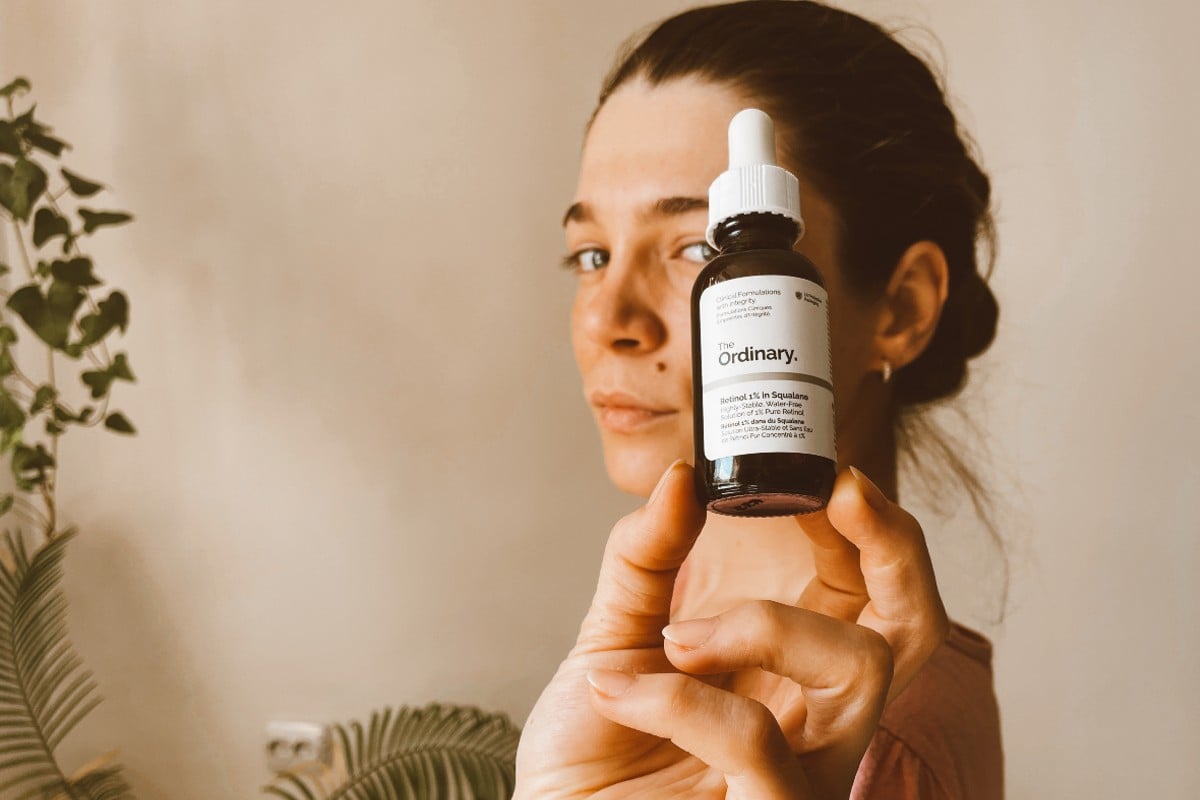Table of Contents
If you’re like many of us, you’re probably hesitant over the whole concept of slathering actual oil all over your skin—especially your face. After all, oil is usually something we’re hoping to strip from our skin so that it’s not shiny, greasy and acne-prone! But certain oils can actually work wonders—especially rosehip seed oil for skin!
Extracted from the fruit of the rose plants, this oil has been used for centuries, but has increased in popularity over the last several years. It’s become a favorite of cosmetics brands, home beauty DIYers, and the likes of Gwyneth Paltrow.
Meet the experts
Marisa Garshick, M.D., a dermatologist at Medical Dermatology & Cosmetic Surgery
Olivia Rose, N.D, a Toronto-based naturopathic doctor
Lana Butner, N.D., naturopathic doctor in New York City
Medically reviewed by Dr. Rina Mary Allawh, M.D., a board certified dermatologist
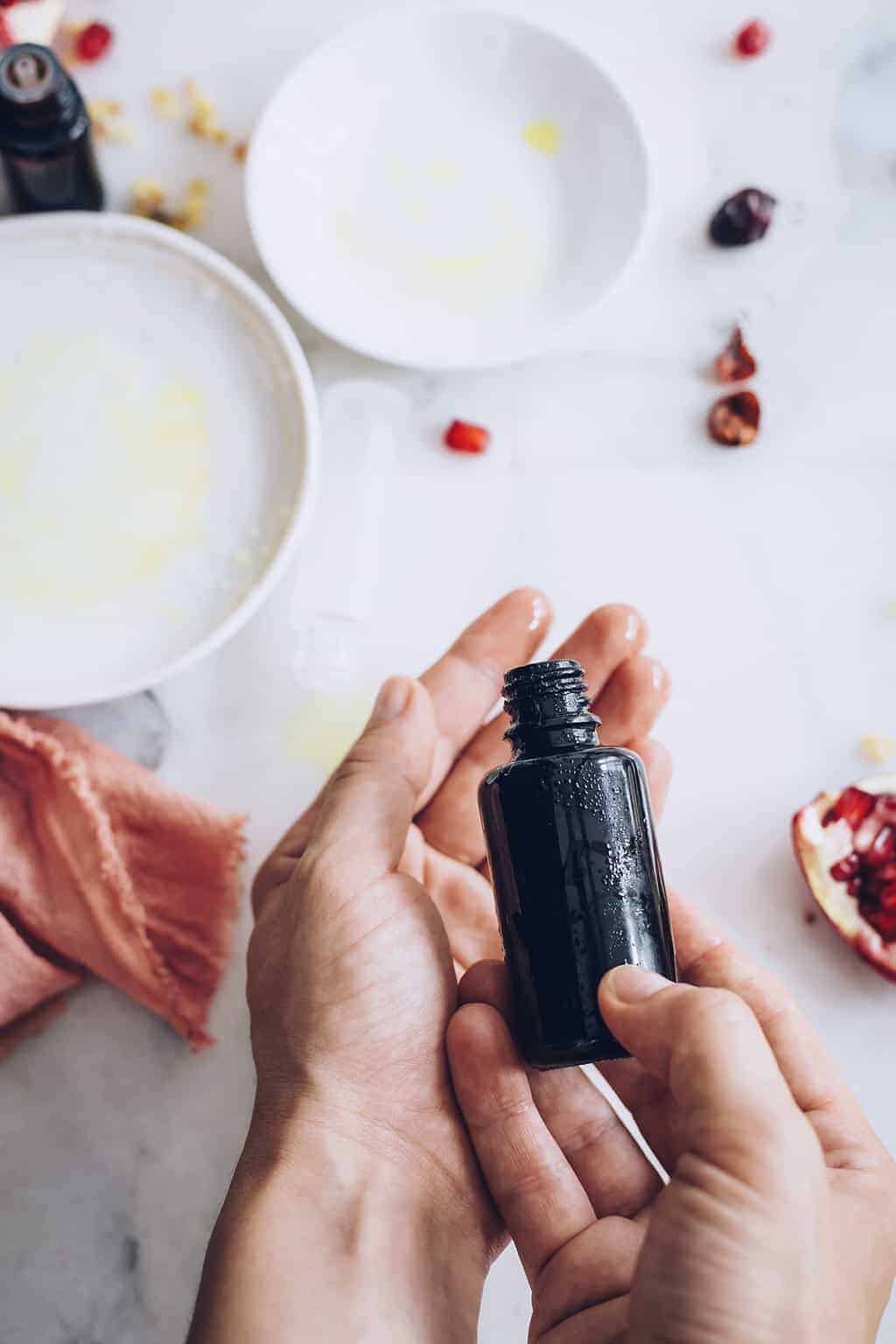
What Is Rosehip Oil?
Rosehip oil (or rosehip seed oil) is extracted from the seeds of a rose bush (either Rosa moschata or Rosa Canina). The seeds and seed cases left behind after the rose has flowered and dropped its petals are pressed to extract the seed oil.
Its popularity is due to the fact that it’s lightweight, absorbs easily and can address various skincare concerns including anti-aging and brightening, explains Marisa Garshick, M.D., a dermatologist at Medical Dermatology & Cosmetic Surgery (MDCS). “Rich in fatty acids and vitamins such as Vitamin A, C, E and beta carotene, it can improve the overall tone and texture of the skin,” she says.
Benefits of rosehip oil for skin
Rosehip oil offers some serious benefits to the skin, as Dr. Garshick mentioned above. Rosehip (seed) oil is filled with antioxidants, vitamins, and fatty acids, making it an essential choice for hydrating super dry skin, reducing scaring, or evening out pigmentation.
Here is a look at some of the ways rosehip oil can improve your skin.
1. Regenerates skin
Rosehip oil can be applied to damaged skin to support healing and regeneration, according to Toronto-based naturopathic doctor Olivia Rose, N.D. That’s thanks rosehips’ high amounts of carotenoids, which gives rosehips its distinct orangey red color. Those carotenoids are the precursors of skin-loving antioxidants vitamin A and vitamin E [source].
Vitamin A stimulates skin cells and helps restore damaged cells while vitamin E supports healing from burns and environmental damage. Rosehip seeds and seed oil have long been used to protect the skin and diminish scars after burns. One study found the topical application of rosehip oil twice a day improved the healing and appearance of scars [source].
Dr. Rose recommends rosehip oil as a staple for any patient to have in their medicine cabinet. “Just apply a drop to any scrape, or lesion to support the healing process,” she adds.
2. Increases collagen formation
Rosehip oil has vitamin C which is amazing for the collagenous matrix of the skin, according to Lana Butner, N.D., naturopathic doctor in New York City. Vitamin C plays an important role in supporting the skin and collagen formation. One study found taking rose hip powder orally significantly improved crow’s-feet wrinkles, skin moisture, and elasticity after 8 weeks of treatment [source].
3. Hydrates dry skin
Most of us are looking for ways to hydrate our skin, especially during certain seasons of the year, such as fall and winter, where there’s naturally less humidity in the air. Rosehip oil is one of the richest sources of essential fatty acids, like linoleic and linolenic acid, so it can help keep the skin soft and smooth.
Thanks to its hydrating abilities, rosehip oil is an excellent ingredient to help moisturize the skin, so it’s a great addition to the skin care routines of those with dry or dehydrated skin.
3. Scavenges free radicals
Rosehips’s abundant antioxidants, including vitamin C and vitamin E, help scavenge free radicals [source].
4. Calms Inflammation
Rosehips’ vitamin E content helps calm skin inflammation, which can contribute to cell damage and photoaging from UV exposure. In addition, “vitamin C is an antioxidant and is amazing for adrenals, which is where cortisol (our stress hormone) is secreted from,”says Dr. Butner. “This means rosehip oil can help mediate stress, which can easily show up on our faces and in our complexion.”
5. Combats Acne
Rosehip’s high fatty acid content —those linoleic and linolenic acids —may be especially helpful in preventing acne, as studies have linked a linoleic acid deficiency to development of acne [source].
And rosehip oil is a low comedogenic oil, meaning it won’t clog pores, and a little goes a long way. “Rosehip oil is known as a ‘dry’ oil since it is easily absorbed into the skin’s layers, sealing in moisture,” says Dr. Rose. “It’s best to apply it on its own or after your serum or regular moisturizer. Two to 3 drops is all you need.”
Who should—or shouldn’t—use rosehip oil?
Since rosehip oil is very moisturizing, it’s great for people with dehydrated skin, or skin that lacks elasticity and sun damaged skin. The best candidate for rosehip oil, according to Dr. Rose, is anyone with dry, aging, sun-damaged skin that is starting to lose elasticity.
On the flipside, anyone with super sensitive skin or those who react poorly to rosehip oil should avoid it. Dr. Butner always asks patients to test new skin products on a small patch of their inner arm before applying to their face.
“Keep an eye on the area for 24 hours and if any redness, flaking, or itchiness occur then do not move forward with facial application and it is most likely best to discontinue use,” she says. “Also, anyone who already is taking oral vitamin A or is using a topical retinoid cream/gel should be careful when using rosehip oil, which also contains vitamin A. Too much Vitamin A can cause unwanted photosensitivity (sensitivity to sun exposure).”
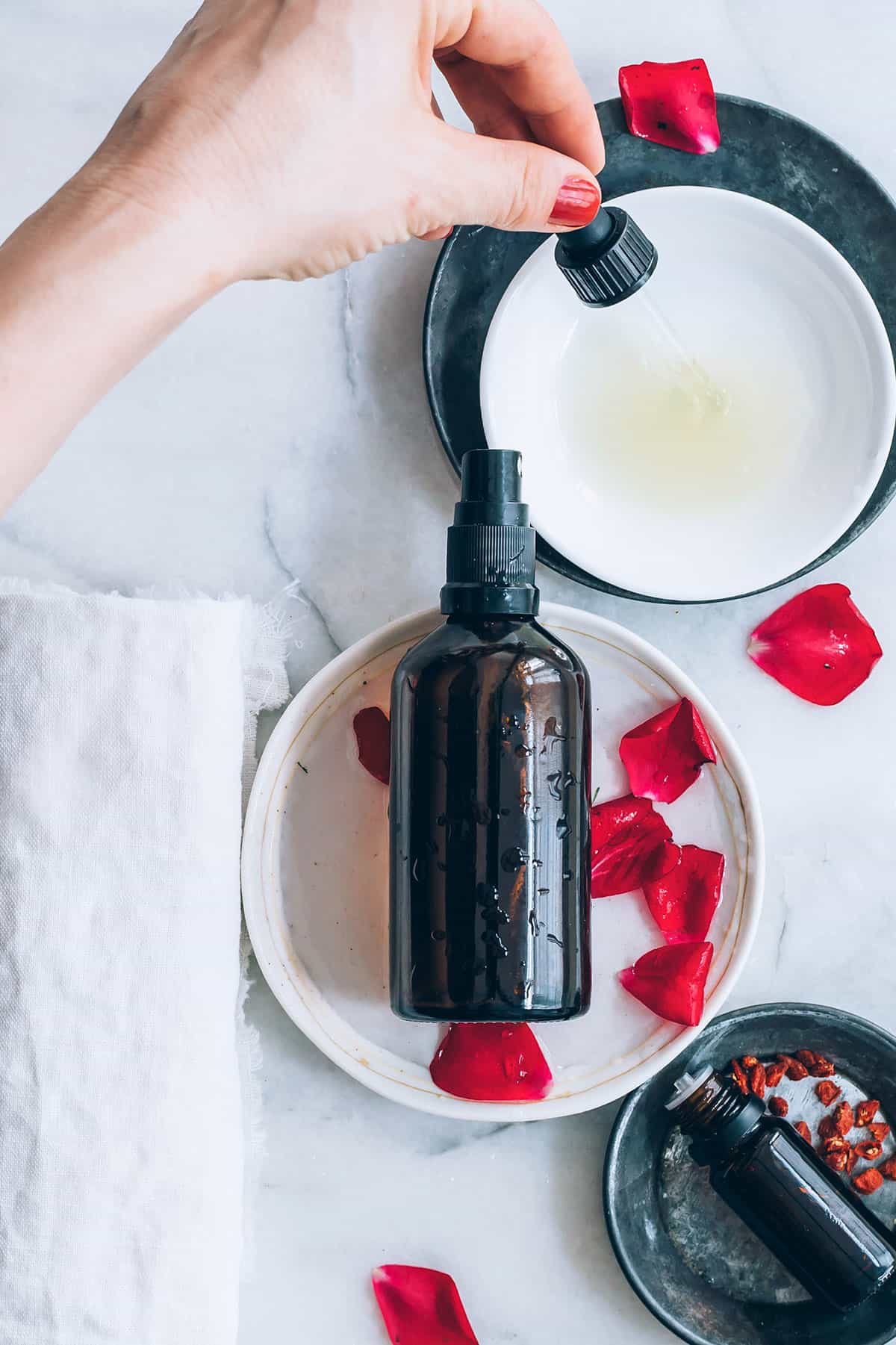
How to use rosehip oil
There are so many ways to use rosehip oil in your skincare routine. Here, experts share their best kept secrets for how to optimize the use of this ingredient.
As a cleanser
As a first step in your skincare routine each day, you probably clean your face. You can infuse some rosehip oil to your favorite water-based cleanser (just a few drops will do!) or to another oil such as grape seed or jojoba oil.
“Massaging the mixture into the skin and gently removing it with a warm washcloth is a great way to use rosehip oil if you are a newbie and concerned about applying a straight oil to your skin,” says Dr. Rose. “When you remove the oil infused cleanser from your skin, some of the oil will remain which will give your skin a really nice glow.”
As a moisturizer
Dr. Rose recommends applying 2 to 3 drops of rosehip oil to your face, neck and décolleté after your normal cleansing and moisturizing routine. Doing so will help seal in the moisture and leave your skin soft and supple.
As a carrier oil
Rosehip oil is great as a carrier oil to your favorite essential oil. “Many essential oils should not be used directly on your skin as they can irritate or burn the skin or cause contact dermatitis,” says Dr. Rose. “The soothing properties of Rosehip oil make it a fantastic oil to add a drop of essential into.”
Rosehip Oil FAQ
What does rosehip oil smell like?
Rosehip oil does not smell like roses! In fact, you might be surprised at how earthy it smells. The scent has been described as a “mix of fish oil and earth” but the scent dissipates quickly after it is applied to the skin.
What color is rosehip seed oil?
Rosehip seed oil should be an orange-ish red-ish color. It should not be clear.
Does rosehip oil need to be refrigerated?
Yes, refrigeration will help extend the shelf life of rosehip oil. But you should always keep your bottle in a cool area away from direct sunlight. Use an amber or blue bottle when using rosehip oil in DIY recipes and it will last several months.
10 Rosehip Seed Oil Uses & Recipes
Add a few drops to your daily moisturizer or try one of these rosehip oil beauty recipes:
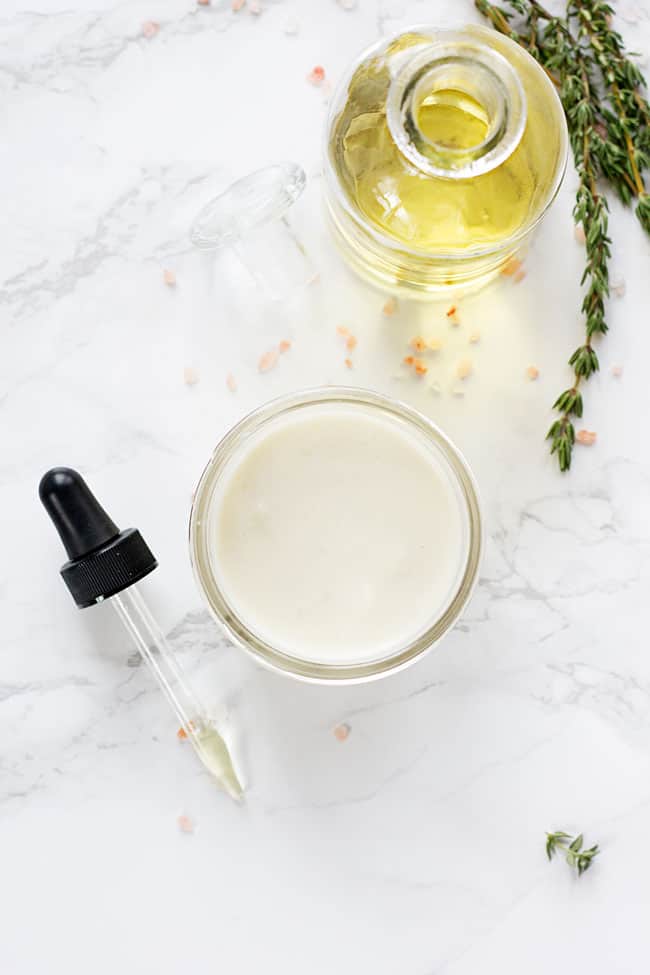
1. Rejuvenating Rosehip Moisturizer from Hello Glow
Not only is rosehip oil known to help smooth away imperfections but it also hydrates dry, itchy skin like a dream. The combo in this recipe is an age-defying, ultra hydrating moisturizer we swear by.
2. Firming Pumpkin Spice Facial Scrub from Hello Glow
Giving your skin regular exfoliation is very important in the long term. You’ll love the pumpkin spice scent of this facial scrub, but also the firming effect from the rosehip oil. Perfect for fall!
3. Homemade Vitamin E Scar Lotion from Hello Glow
Although it’s loaded with nourishing oils, when mixed together, the ingredients form a light, non-greasy lotion that’s perfect for rubbing into scars or healing injured skin.
4. Carrot Seed + Rosehip Eye Serum
The fact that this recipe is meant for roll on application may seem like a small thing, but it’s not! You won’t waste precious ingredients by using too much at once, you don’t have to worry about getting dirty fingers in your eye, and you won’t pull and tug on the delicate eye skin.
5. Rosehip + Rosewater Face Serum
If the bland scent of rosehip oil leaves you like ‘meh’, you’ll love this upgraded face serum that smells absolutely lovely! And it’s not just a lovely scent – it works, too!
6. Rosehip Facial Oil
Clearly, everyone wants youthful skin, so anti-aging facial oils can be super expensive. Why not take that money to buy these ingredients and make your own for years to come?
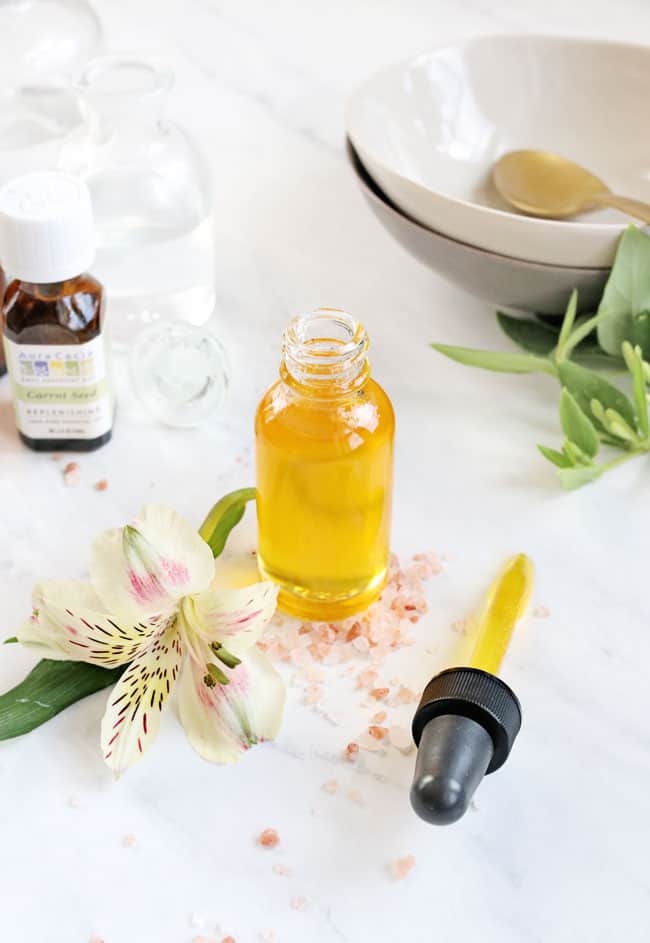 7. Serum for Scars and Discoloration
7. Serum for Scars and Discoloration
Whether you’re dealing with fine lines, sun damage, or scarring, this healing serum with rosehip, carrot seed, lavender, pumpkin and frankincense essential oils will take care of it all.
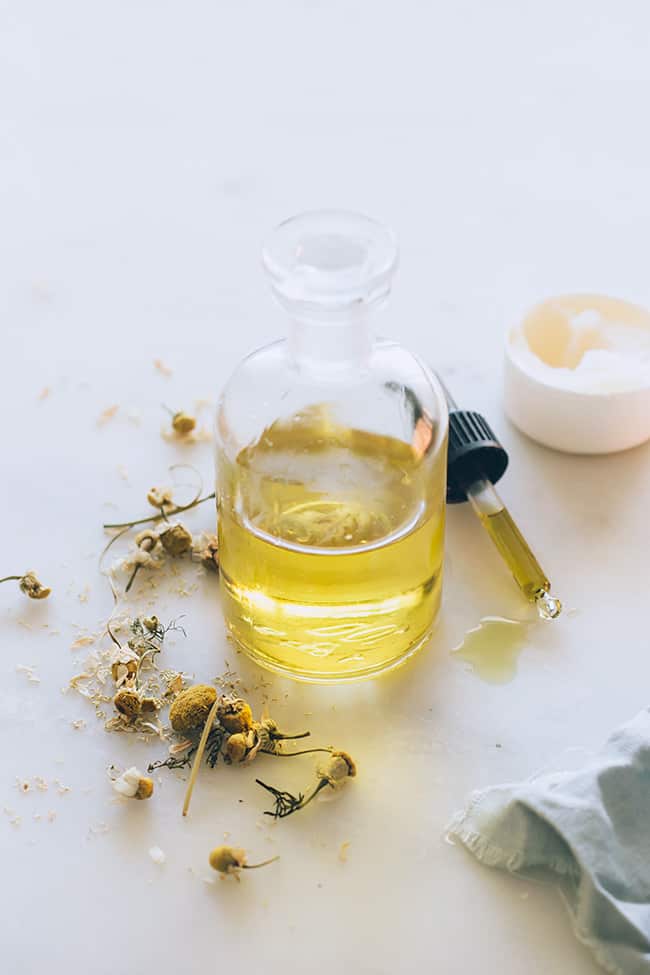 8. Creamy Cleansing Balm
8. Creamy Cleansing Balm
Switch out your regular face cleanser this fall for a creamy, hydrating cleansing balm. Ideal for winter skin, you can make this balm with rich rosehip seed oil. It also doubles as a makeup remover.
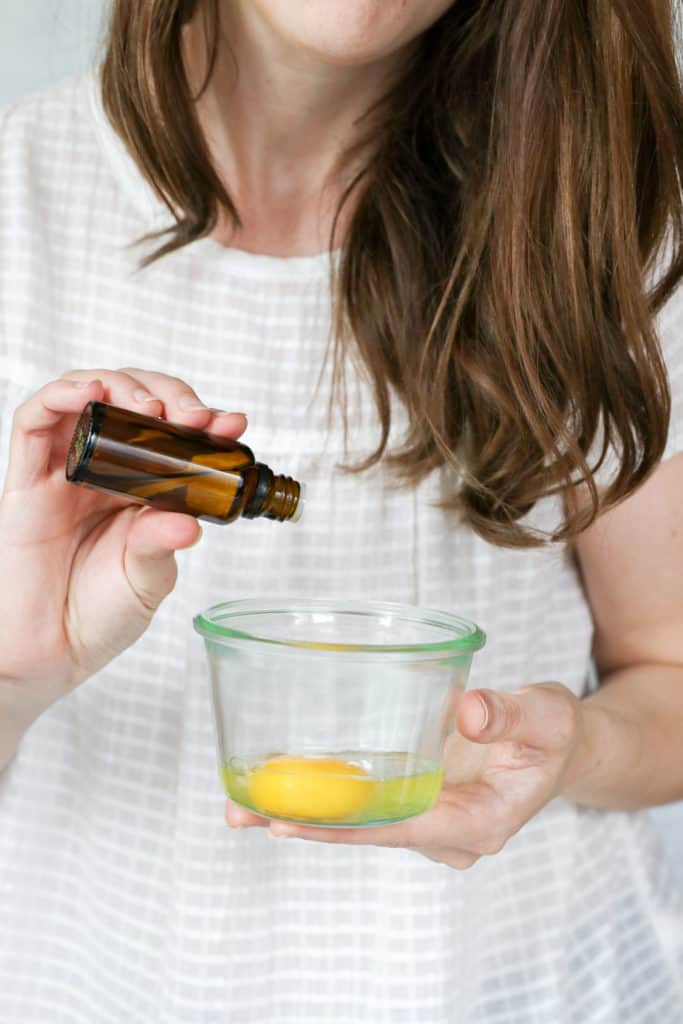 9. Moisturizing Egg Hair Mask
9. Moisturizing Egg Hair Mask
Combine protein-packed eggs with rosehip oil for a moisturizing hair mask to nourish the scalp, which encourages new hair growth, and strengthen strands, making them less prone to breakage or shedding.
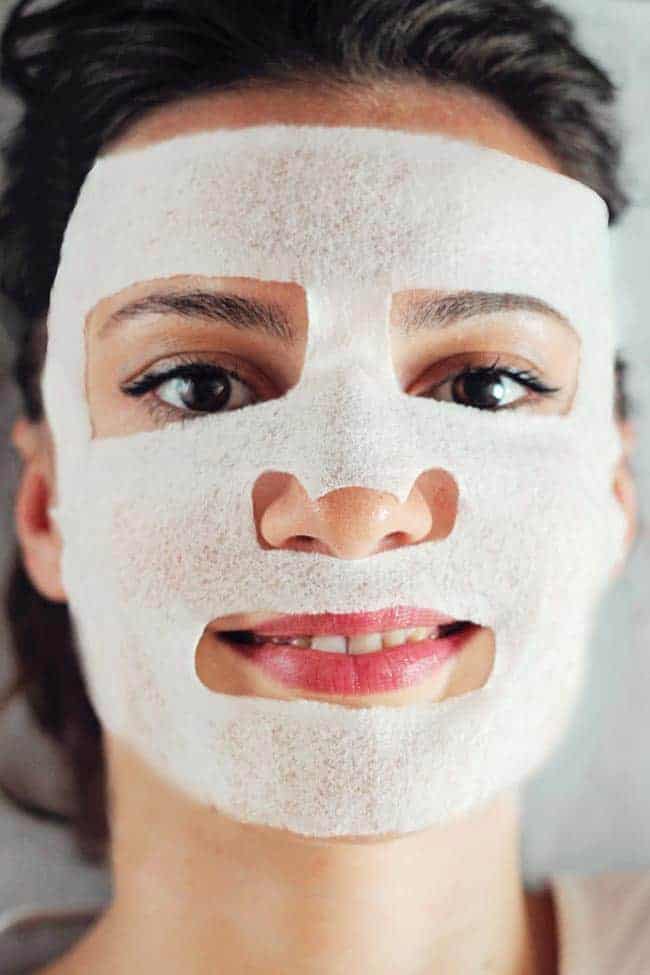 10. Hydrating Sheet Mask
10. Hydrating Sheet Mask
Try an at-home sheet mask recipe using a tissue or Kleenex to give your skin a boost of added hydration. Dip the mask in a mixture of water, honey, and rosehip seed oil and relax while the treatment delivers a dose of vitamins and essential fatty acids to moisturize and treat aging skin.
This post was medically reviewed by Dr. Rina Mary Allawh, M.D., a dermatologist who performs adult and pediatric medical dermatology, skin cancer treatment and cosmetic dermatology. Learn more about Hello Glow’s medical reviewers here. As always, this is not personal medical advice and we recommend that you talk with your doctor.

